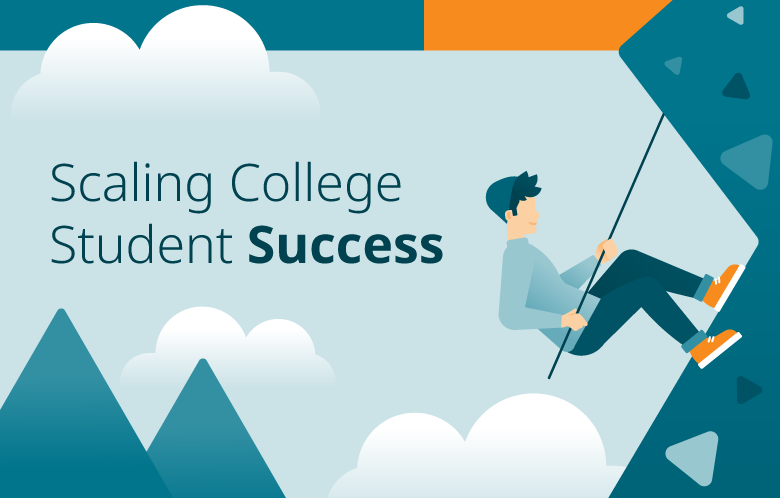Transcript | Download
GOBI Evidence-Based Acquisitions: How to Develop User-Centered Book Collections
Hello, my name is Jenny Hudson and I am the Senior Collection Development Manager on the West Coast. I've been with GOBI for almost 19 years. I live in Portland, Oregon, and I work with libraries. EBA allows libraries to offer an extensive collection without a commitment to purchasing every single title published by a publisher. At the end of the EBA, the library is presented with data showing what is used and the library can make purchases accordingly. And because of this, the collection provides a better value for the libraries. Additionally, EBA allows libraries to track user needs and trends over time, and then they can shift collections accordingly. Thus, the collection remains relevant and pertinent. Additionally, for a special collecting project, EBA can be a great way to incorporate access to titles without breaking the budget. I've seen this used quite successfully for DEI efforts. Other subject areas can also be great for this. And then, unlike other user driven models, EBA maintains control of what is purchased and how much is spent. There's no surprise involved. The library commits what it can to spend for that period of time, and then the program is developed accordingly. Running your EBA through GOBI adds additional benefits. It offers full integration with all of your other GOBI services and allows you a universal view of EBAs that you have in place. Whether you're running one or multiple, it is all visible in GOBI, thus its making it like a one stop shop. From start to finish, we're here to assist with the EBA process to make sure it fits in with the rest of your collection development processes. GOBI can help with building a title pool. We help with negotiating pricing based on past purchase history and subject focuses. We help with invoicing. We make it easy. We're able to add PO numbers and fund codes. And then you're supported by the same GOBI team that you're used to working with on everything else. We provide discovery records and we update the GOBI interface so that the library can easily see if a title is in an EBA program. Doing this takes the guesswork out of the picture for selectors. They don't have to look elsewhere to know if a title is part of an EBA. This limits duplication and it allows for a much more informed purchase decision. It also allows our approval plans to run without worry. The system will dedupe so you don't have to limit publisher lists or do any other maintenance on top of just running the EBA through our system. And when all is wrapped up, GOBI is also there to help with final title selection and renewal. And once you've purchased everything, we offer the possibility of customized full cataloging records for all of your EBA selections. Because of all this, there are many libraries who have opted to run EBA through GOBI. We successfully are currently offering over 250 EBAs. The largest have over 150,000 titles and the smallest are just under 2000. Whether you have $5,000 or $300,000, there's likely an EBA program that could work for you. It's something that can happen for small libraries or community colleges, large libraries or even consortium. We've worked with all of them. We work with a variety of EBA publisher and if you're interested, it's always good to work with your GOBI contact to discuss the possibilities. There are several options available. Now let's go and look at the GOBI interface and see how it all looks. This is the GOBI Welcome Page. This is where you're going to always log in to GOBI, and this will be the first thing that you see. It's where we provide all sorts of information and updates. And it is from here that you can actually find more information on the EBA and eCollections possibilities. Over here on the left hand side, you'll see it listed right there in the middle. And if you click on that, it'll provide you further information as well as a place to click in and ask for additional support or for us to contact you about this. Now let's look at a GOBI record and what it actually looks like when you find a title that's part of your evidence based collection tool. As you can see, this library is running a Taylor & Francis EBA. The library's history alert right over here notes that It tells you that this is part of the EBA collection and it tells you what date it was added. So a selector or someone in acquisitions or someone looking at this can very quickly note the title is actually part of an EBA program. Now, some libraries opt not to purchase anything that's part of an EBA program. Some actually opt to purchase throughout the running one if they want to. So you could look at this. If they're interested in this title, you could mark it and save it for when the EBA is finished. And make sure to note that this is one that you want to purchase at that time, or you can purchase it. if you order it now, it won't affect the EBA program. We’ll make sure that you know at the end as we're wrapping up that this has already been purchased. So duplication should not be of concern. So speaking of that, let's go ahead and look at what the end of term reports would look like and how we would go ahead and wrap everything. This is the End of EBA report. Notice I've zoomed way out. The intention is just to show you there's actually a lot of information here that is being covered. I'm going to go ahead and zoom in and make it easier for everybody to see. When we get here, you can easily see that at the top there is a selection summary box. This tells you how much money has been committed to this EBA. It'll tell you how long it has been in place or what the coverage period is and who the publisher is. What you’ll also see really quickly is there are a bunch of columns. All the ones here in the blue are the information that GOBI has added. And as we scroll over here, we'll also see that there are gray headers. Those are all the information pieces that we’ve received from the publisher. The really pertinent and important ones that are often used are these title usage ones here, this column here. And you can see we have sorted this by the most used title on top. Additionally, you're going to see this bright yellow highlight throughout. Those are those duplicative titles. Those are titles the library already owns and that GOBI knows about. This is like what we were just showing you, that example, if you had gone ahead and purchased it at the end of term, we would go ahead and highlight that here. Now, in this case, we will note if it is a print purchase or if it's an e-purchase. Here's an example of what an e-purchase would look like, and over here is what a print purchase will look like. So, once you've looked at this and made a decision about which ones you're interested in, you can go ahead and mark and select the title you want by clicking on an X, and once you do that, it populates the price and it starts calculating up here. Now, like I said, a lot of people use usage as their primary purpose or reason for purchasing something. However, as I noted, GOBI also adds all of the bibliographic approval information, and you can see that down here. So if, outside of usage, you are also interested in, say, incorporating stuff that's going to support DEI effort or supporting a new program, you could look at the aspects and the interdisciplinary topics to help decide whether or not you want to go ahead and add that as part of your purchase. Once you have done all that and calculated the titles you wanted, you just go ahead and return that to your GOBI contact and we take it from there. And then we go ahead and make those purchases. We tell the publishers that you are making these purchases and these selections, and then we go ahead and provide any records that you're requesting and help you with the renewal and reiteration for the next year. As a wrap up, let's talk a bit about what makes a vendor partner important for EBA. Workflow integration. A universal view of everything you do to make it easier for you. Duplication, control. That's better use of your funds, making sure you're not accidentally buying multiple copies. A purchase history across multiple platforms. Basically knowing at that end of term, did you buy it on a different aggregator platform? Do you already own it? Giving you as much information as possible so that you make sure that you are purchasing mindfully. And bibliographic metadata. This will help you when usage isn't the only thing that you're concerned about when you're really looking at building a robust collection, but also a relevant collection. Thank you for joining me today, and please stay updated on all things GOBI by joining our GOBI 60 Second Update newsletter. You can do so by accessing that address or going in search on any browser for GOBI 60 Second, and it'll take you to a page that would let you sign up for that easily. Thanks.


